
Branching Path: Bryan Vitale's Top 10 Games of 2020
In some ways, I'm surprised that I'm already on my fourth of these personal end-of-year ranking lists. I look back at some of the titles I picked for 2017, 2018, and 2019, and I find myself already disagreeing with my past self in a few small ways. I guess ranking games for me has always been a somewhat transient thing. Ask me today what my favorite Final Fantasy game is and I might come up with different answers today and next month, or next year.
Still, I enjoy writing in the moment as a sort of time-capsule for myself more than anything. Even if I look back on this and guffaw at where my rankings ended up, I find that preferable to not doing one at all. A few of the games on this list I expected to be here, but most were surprises to me.
Honorable Mention) Bug Fables
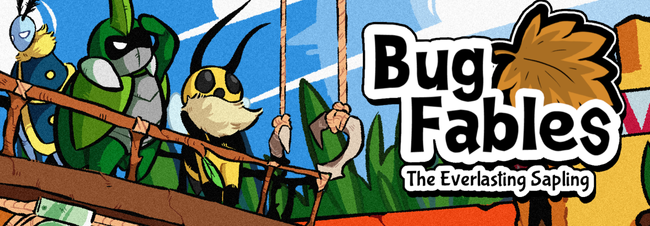
Bug Fables might be one of my favorite games that I played in 2020, and it did actually release on consoles this year. But I played the PC version before the console release, so I wouldn't feel proper slotting it into a numbered position on the list. As I stated in my review of the game for the site, it's impossible to talk about Bug Fables without also talking about Paper Mario, as the former is deliberately fashioned in the mold of the later. Now I enjoyed Paper Mario: The Origami King a fair bit, even though it doesn't appear on this list here. As an RPG nerd, however (why else would I be here), I am squarely in the large camp of people that are fondly nostalgic of the RPG roots of the original Paper Mario and of course The Thousand-Year Door.
Now Bug Fables isn't just a solid imitator, but a superbly smart RPG in its own right. Even though it feels thoroughly like a proper love letter, it has a few unique strengths on its own. I loved having a trio of main characters banter and bounce off of each other in a way that Mario plus Partner can't really replicate. The child in me earnestly enjoyed the bug themes of the different characters and kingdoms. And the soundtrack is way better than it has any right to be. I know it's easy to be wary of an indie game playing parakeet to a fan favorite -- I was hesitant too. But it ended up becoming one of my favorite games of 2020.
10) Monster Hunter World Iceborne
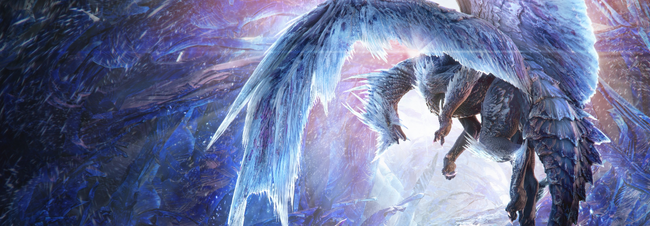
This one might be a gimme because Monster Hunter World was my number one pick for 2018, so of course Iceborne would be on the list. Having played the PC version of the game, Iceborne technically squeaks into 2020 having released barely a week into the year. Now most of the reasons I ended up adoring Monster Hunter World I've already covered in my previous list, and rewarding it high up twice feels a bit like a missed opportunity to highlight other games, which is why it sits at the bottom this year. That's not to say I enjoyed it less, I spent hundreds of hours in the Hoarfrost Reach and Guiding Lands, and Iceborne improved massively on the base game in multiple ways.
New monster types like Rajang and Zinogre greatly improved on the limited monster variety of the base game, and smart updates to gear acquisition made near hopeless runs of Kulve Taroth a thing of the past. Other improvements such as the Clutch Claw and slinger upgrades meshed so well into the inner workings of combat that it's hard to remember a time before Iceborne where they weren't available. I'm not sure how much time I'll stick into the upcoming Monster Hunter Rise, but as a Monster Hunter newbie with World, I feel like I couldn't have picked a better jumping-on point. I think Iceborne easily deserved our site pick for best ongoing support for 2020.
9) Doom Eternal
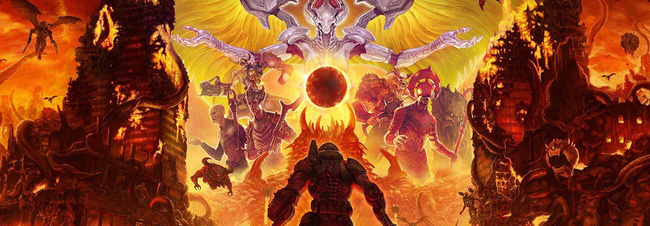
While it was before my time on the site, I really enjoyed the 2016 rendition of Doom, and it would have likely placed high up the list had I written one for that year. I enjoyed Doom Eternal nearly as much, overwrought story-focus and all. I once saw someone describe the newest two Doom entries as the best approximation of what a character action game would feel like if it was a first-person shooter, and I find myself nodding along with that sort of summation.
Games with a bit of teeth when it comes to challenge are the ones that I find appeal to me more. If my input in a game is meaningless and only progresses scenes or set pieces in a set order where execution doesn't factor in, I find myself losing interest quickly. Doom seems like the perfect fit for me in this manner in many ways. I know certain people hated the Marauder enemies, but I loved them as a puzzle to figure out, and even once I knew my preferred strategy for defeating them, execution still mattered greatly. I played Doom Eternal when I needed a break from consecutive long RPGs and it was the perfect spacer game for that.
8) Phantasy Star Online 2
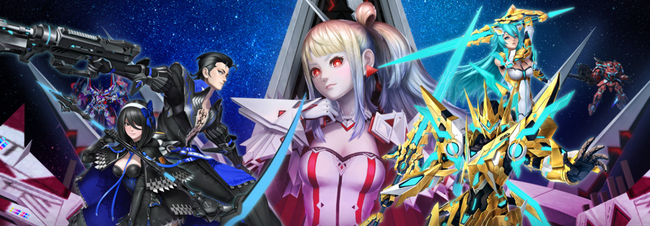
I initially installed Phantasy Star Online 2 as a sort of curiosity. Here was a game from 8 years ago that was seemingly never going to get an official english release -- until it did. Not only that, but the new global server of PSO2 was going to rocket through all 8 years of story and updates in less than one, resulting in a ludicrous pace of constant new classes to try, new story beats, and new gear becoming obsolete in the span of a month. Every two weeks or so there was a new urgent quest in which players take on a public raid boss of sorts. Or there was a new weapon set to gather materials for. To stay 'on top' of this game in 2020 basically required me to check in literally every other week or so at the slowest. Keeping up with a slew of service-style games is already a growing bugbear in so many games these days, and in a weird fashion, PSO2 took that to the extreme this year.
The result of the weird (and fast) circumstance of PSO2's global edition is that it might have been the most uneven online experience I've ever sunk time into. At the start, things were very nonsensical and clearly dated. However, it was quite illuminating to see the growth of the game and watch the ideas implemented so roughly early on start to come rapidly into focus as years of development and polish were truncated down into months. Even though it was very rough in the first few episodes, all spliced together into some awkward amalgamation to serve as the global launch, by the times Episodes 5 and 6 rolled around, I found myself legitimately eager to log in more frequently. Which I supposed is the point with New Genesis around the corner in 2021. It may have not been the best game I played in 2020, but certainly the most interesting gaming experience.
7) Final Fantasy VII Remake
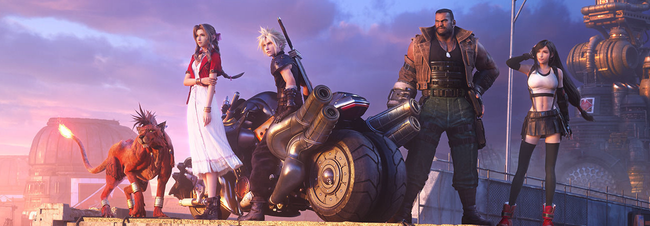
I grew up with Final Fantasy VII, but I was a little late to the party. My first game in the series was actually Final Fantasy X, but I enjoyed the experience so much that I quickly went on to track down copies of VII through IX in middle school. So I went into Final Fantasy VII Remake with some nostalgia goggles for sure, but perhaps not quite as strongly had I experienced Final Fantasy VII as the forward-facing landmark it was in 1997.
I already wrote my thoughts of Remake in RPG Site's review for the long-awaited reimagining of that childhood favorite. When I go back to read the review now, I find myself a little surprised at how much I focused on the combat over everything else. I supposed I always have been a bit of a systems and mechanics nerd over a plot or character one, and in that respect, Remake's excellent blend of ATB and action just sung to me. I was only lukewarm on the much-discussed story alterations. I find myself admittedly more cynical on the plot direction of the reimagining, though I am trying to hold off judgment until I have all components of the experience to compare to the original, or at least see if it ends up becoming compelling on its own merits. My favorite parts of the original game are what would be expected to be covered in whatever's to follow Final Fantasy VII Remake, and I'm confident that I'll certainly enjoy 'Part 2' even more if it manages to recapture even a fraction of what made the events of Cosmo Canyon and Corel so memorable to me all these years later.
6) Ori and the Will of the Wisps
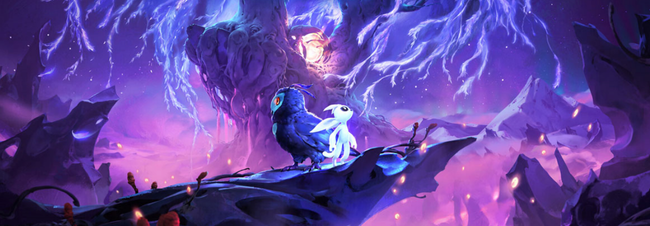
I really liked Ori and the Blind Forest, so any sort of followup was bound to make it on this list. In between the two games, I had also played Hollow Knight which ended up being a clear inspiration for Ori 2, which brought along just enough of similar rpg-lite and skill mechanics to really push the sequel far beyond the original game. One of the reasons I still feel so strongly about Ori 2 is that it earns its reputation as a tear-jerker. It manages to be sentimental without ever becoming cloying. It has one of the most poignant endings in a video game without becoming melodramatic. It has a wonderful antagonist and some excellent story moments even though it's not a story-focused game in most respects.
I know some people don't really enjoy the sort of 'escape sequence' challenges that were so prevalent in the first game, but to me there's no purer form of challenge for a game largely based around platforming, and I found myself pumping my fist after successfully completing each one. By being more combat-focused as well, Ori 2 could intersperse these sorts of designs around battle arenas and real boss fights alongside. While I had no real issue with the focus of the first game around more pure platforming, having the additional variety here meant that the well never felt like it got too dry to keep environments, fights, puzzles, and the like from feeling fresh. Top it off with some excellent music and Ori and the Will of the Wisps is a complete package that I encourage anyone to try.
5) Wasteland 3
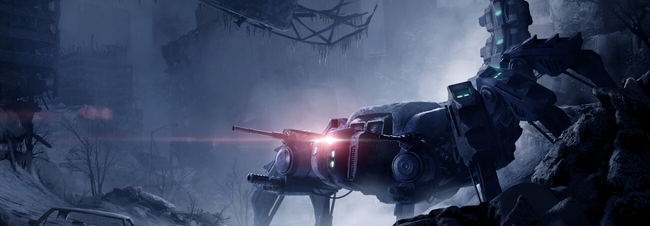
In early 2020, I played through Fallout and Fallout 2 on a whim. While admittedly dated, I enjoyed them a fair bit and found myself pining for a similar game made with modern tools. It also turns out that some of the original talents behind those original Fallout games were behind Wasteland 3. Unfortunately, so much of the marketing of inXile's take on the post-apocalypse was, for lack of a better word, dreadful. When it finally released in the middle of the year, I wasn't eager to try it out right away amongst games that were more outwardly compelling. Some pretty strong word of mouth and one major update later, I eventually downloaded the game (thanks, Game Pass!) and as you can tell from its spot on this list, ended up really impressed.
Wasteland 3 is admittedly a hard sell, as I experienced firsthand. But when I finally made it past the grimy exterior, I found a smartly made RPG that made me think more than I expected it to. I often find that so often that games often oversell the "choice and consequence" line, so much so that I find myself wincing a bit to type it out here now. But Wasteland 3's real strength is that it's a game that doesn't overextend to flatter the player. Making choices in this game is rarely a good feeling, rather they come from a place of necessity. So many games boil down to a point where simply being a good person or not is an easy choice, but here the "right" path forward is never quite so obvious. Add on top of that some compelling squad-based management and tactical gameplay and Wasteland 3 is probably the game I've turned around the most on from start to finish.
4) Xenoblade Chronicles: Definitive Edition
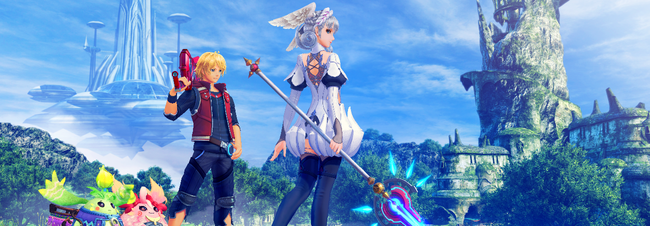
If I was writing about video games back in 2010, I'd probably have gushed endlessly about Xenoblade Chronicles. It felt like a JRPG tailor-made for me. So often I found myself playing games with strong stories and stellar casts but would fumble on giving me agency, they would simply string me along from setpiece to setpiece and rarely gave the game itself time to breathe. In spurts, I do enjoy games like that, but I just end up wanting more. Speaking bluntly, even if I love everything about the story of a game (which I pretty much do here), sometimes I just want to set that all aside for an hour or five and just play the game itself underneath it all. Xenoblade Chronicles felt like the second game that accomplished this for me, after Final Fantasy XII, which didn't land quite so strongly on the narrative department (though I still love it to bits).
A fantastic soundtrack and wonderfully distinctive English voicework have been there since day one, but the Definitive Edition allows so much of the art and design to shine through from the limited original capabilities of the Wii hardware. I loved the sights and scope of reaching the Gaur Plains and beyond just as much in 2020 as I did in 2010.
Even the new epilogue in Future Connected felt appropriate to the story, and I am so very glad it didn't overstep into some meta-universe branching nonsense that it so easily could have. After playing through the whole game again I found myself equally emotional at the ending cutscenes, which I hold as one of the best and most hopeful of the genre. On the character front, Shulk is still one of my favorite protagonists ever, and nearly the whole cast plays off of each other fantastically without feeling formulaic and giving everyone their 'moment' in turn. Xenoblade Chronicles: Definitive Edtion gave me an opportunity to cement this game as one of my all-time favorites.
3) Fae Tactics
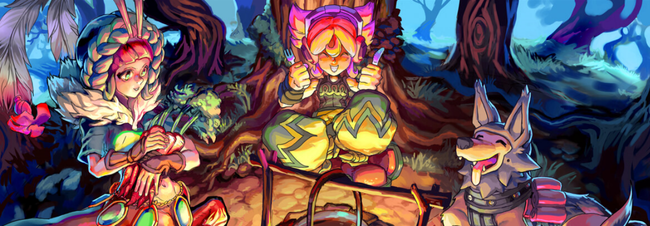
At the risk of overusing this turn of phrase, Fae Tactics is one of those games that came out of nowhere for me in 2020. I had seen a few gifs of the game from indie showcases and the like over the last year, and its 16-bit bubblegummy style immediately drew my eye, but I wasn't expecting to have an affinity to this game beyond that cursory impression. Underneath its colorful shell, however, was one of the most inventive (and challenging!) tactical RPGs I've played in a long time.
Tactical games are easily prone to play it too safe, especially when crafted in the vein of something like Final Fantasy Tactics. However, Fae Tactics doesn't quite play like any other game I've played, or if it does, only to a very surface level. Mixing Pokemon-esqe monster elements and a saturday cartoon aesthetic actually sort of betrays how difficult this game can be at times. I've always enjoyed games that mildly frustrate me and ask me to rethink my strategy or retool my approach after failing, and Fae Tactics had that for me in spades. I also enjoyed that the game was bold enough to feature missable optional story events and characters amongst its non-linear narrative. While so many seem to adopt the flavor of a tactical RPG, Fae Tactics actually lived up to its billing.
2) Yakuza: Like a Dragon
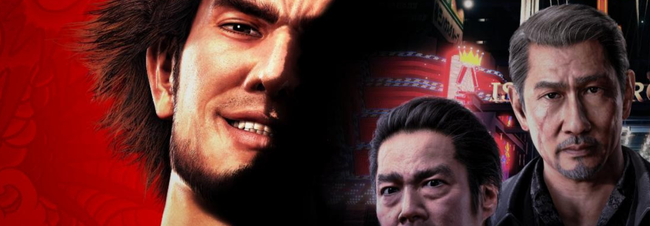
I hadn't played a Yakuza game until Yakuza 0 arrived on PC in 2018. Having since played 0, Kiwami, and Kiwami 2, I found myself enjoying the stories a fair bit, but already worn out by the brawler-style gameplay after only two games. The stories were always compelling, and the side-stories often hilarious and memorable, but everything between those moments just felt like flavorless filler to me. They didn't detract from my enjoyment too much, but they were just the serviceable, requisite sort of gameplay I was expected to play through between setpieces and mini-games. I didn't really realize to what extent I had just been going through the motions in this regard until I played Like a Dragon.
On its surface, the idea of turning Yakuza into a turn-based RPG doesn't immediately scream like a winner to me. While I did enjoy the new style of gameplay as something more aligned to my tastes (I contribute to RPG Site, after all), it was all the peripheral, unexpected ways that LIke a Dragon upended series conventions that stunned me. A loveable protagonist in Ichiban that doesn't shy away from showing vulnerability. A full cast of adult characters for him to bounce off of and digest the story as it unfolded. All the little ways these changes could affect staples like mini-games and even meals. It was a less lonely, more earnest Yakuza that pushed me over the edge from like to love. I am eagerly looking forward to whatever RGG Studio has next in store if they stay in this direction for the series.
1) Nioh 2

I went into Nioh 2 having greatly enjoyed pretty much every 'Soulslike' game I've tried. Whether it was Bloodborne or even Dark Souls 2, these sorts of games feel tailor-made for me. Challenging, skill-based, story-lite (but not negligible), thematically interesting, and of course lots of gear and stats to work with. However, I had never played one outside of a FromSoftware title. Whether it was lukewarm reviews or a stylistic choice I didn't care for, I ended up ignoring every and all imitators over the last several years. Until I tried Nioh 2 on a whim. And I might just enjoy this more than all of the rest.
I've never played Nioh, the original. That didn't stop Nioh 2 from becoming my favorite game of 2020. The feudal Japanese setting was a nice change of pace from the more Gothic-styled settings of the Souls games, and the whole game is steeped so thoroughly in that framework -- from the story to the level environments to the gear and weapon styles. The plethora of weapon styles, Ninjitsu and Magic capabilities, Yokai abilities, I feel like if you gave this game to ten different people, they'd find ten different ways to play it, which is a testament to the variety and cohesiveness of it all.
A recurring theme of my 2020 selections seems to be that of overcoming challenges, which Nioh 2 of course offers plenty. But instead of ever becoming frustrating, it always offers so many ways to approach any obstacle, from spamming magic, to finding overpowered Soul Cores to compliment my set of gear. When I returned back on NG+ to the first Yoki and Mezuki demons that kicked my ass so many times starting out, I was almost astounded at how much I had progressed through the course of the game upon returning to that point, both in terms of in-game strength and in personal know-how and ability.
Nioh 2 is just as polished as any Souls game, and it has an identity all its own. I don't know if I would have ended up feeling differently if the more iterative aspects across both Nioh games were more obvious to me but as it stands, Nioh 2 is at the top of my list for a year I'm looking forward to leaving behind.